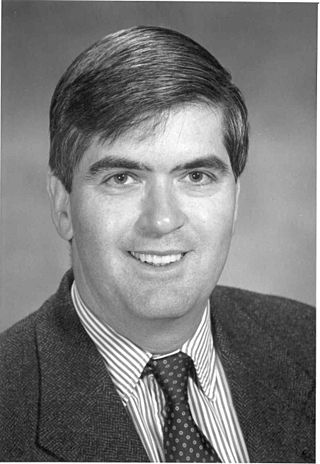George Perry (neuroscientist)
American neuroscientist (born 1953) From Wikipedia, the free encyclopedia
George Perry (born April 12, 1953) is a professor of biology and chemistry at the University of Texas at San Antonio and the former dean of the College of Sciences. Perry is recognized in the field of Alzheimer's disease research, particularly for his work on oxidative stress.
George Perry | |
|---|---|
 | |
| Born | April 12, 1953 |
| Citizenship | United States |
| Alma mater | Allan Hancock College, UC Santa Barbara, Hopkins Marine Station of Stanford University and Scripps Institution of Oceanography of UC San Diego |
| Known for | Work on neuronal oxidation of nucleic acids in Alzheimer's disease |
| Awards | Denham Harman Research Award [American Aging Association], Alzheimer Award and Medal (twice) Journal of Alzheimer's Disease, ISI highly cited researcher Fellow, Corresponding Member of Sciences Academy of Lisbon, Spanish Royal Academy of Sciences and Mexican Academy of Sciences, Fellow of Linnean Society of London, Microscopy Society of America, Royal Society of Chemistry, Royal Society of Medicine, Society of Biology, Royal College of Pathologists, AAAS & Sigma Xi |
| Scientific career | |
| Fields | Neurology |
| Institutions | Baylor College of Medicine, Case Western Reserve University, U AlaskaU Texas San Antonio |
| Doctoral advisor | David Epel |
| Other academic advisors | Bill Brinkley, |
| Notable students | Paula Moreira, Mark Smith |
Education
This section of a biography of a living person does not include any references or sources. (February 2020) |
Perry received his Bachelor of Arts degree in zoology from University of California, Santa Barbara. After graduation, he studied at Scripps Institution of Oceanography, Hopkins Marine Station of Stanford University, and the Marine Biological Laboratory at Woods Hole; he obtained his Ph.D. from the University of California at San Diego in Marine Biology under David Epel in 1979. He then received a postdoctoral fellowship in the Department of Cell Biology in the laboratories of William R. Brinkley, Joseph Bryan and Anthony R. Means at Baylor College of Medicine where he laid the foundation for his observations of cytoskeletal abnormalities.
Professional appointments
Summarize
Perspective
In 1982, Perry joined the faculty of Case Western Reserve University, where he holds an adjunct appointment. He is dean of the College of Sciences and professor of biology at the University of Texas at San Antonio. He is distinguished as one of the top Alzheimer's disease researchers[1][2] with over 1000 publications, one of the top 100 most-cited scientists[3] in Neuroscience & Behavior and one of the top 25 scientists in free radical research.[4] Perry is highly cited (over 82,500 times;H=138;ISI/over 129,000 times;H=177;Google Scholar) and is recognized as an ISI highly cited researcher.[5]
Perry is the current and founding editor-in-chief for the Journal of Alzheimer's Disease, an international multidisciplinary journal that specialises in Alzheimer's disease.[6] He is also a member of the Alzheimer's Foundation of America Medical, Scientific, and Memory Screening Advisory Board.[7]
Perry is fellow of the American Association for the Advancement of Sciences, Sigma Xi, Microscopy Society of America, International Engineering and Technology Institute (IETI), Texas Academy of Sciences, past president and past-interim executive director of the Southwestern and Rocky Mountain Division of American Association for the Advancement of Sciences, past chair of the board of the National Organization of Portuguese Americans and past president of the American Association of Neuropathologists.
Research focus
Perry's research is primarily focused on the mechanism of formation and physiological consequences of the cytopathology of Alzheimer disease.[8] He has played a key role in elucidating oxidative damage as the initial cytopathological abnormality in Alzheimer disease. He is currently working to determine the sequence of events leading to neuronal oxidative damage and the source of the increased oxygen radicals. His current studies focus on two issues: (i) the metabolic basis for the mitochondrial damage restricted to vulnerable neurons; and (ii) the consequences of RNA oxidation on protein synthesis rate and fidelity.
References
External links
Wikiwand - on
Seamless Wikipedia browsing. On steroids.
